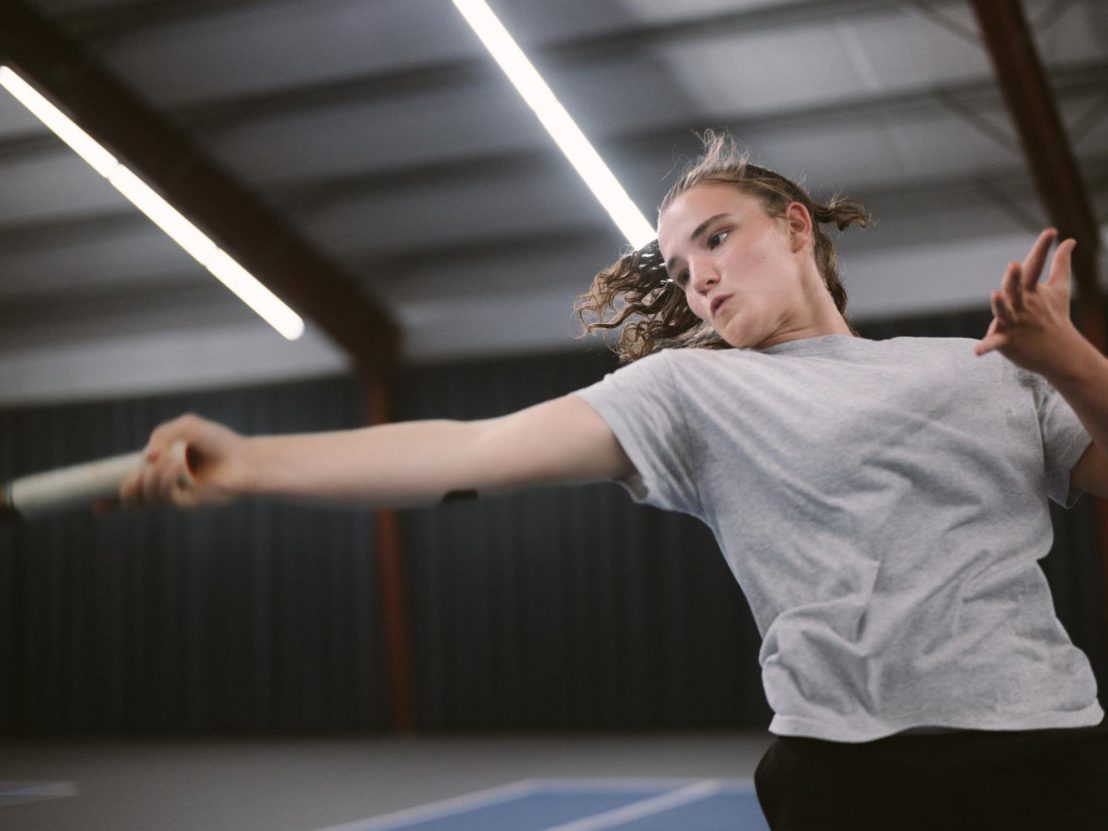
A young tennis star refuses to open about an abusive coach in Leonardo Van Dijl’s impressive feature debut.
This is a #MeToo film that’s entirely focused on the experience of the victims, spending little-to-no time worrying about whether the perpetrator has been “cancelled”. Leonardo Van Dijl’s film is about how difficult it is to speak up and tell your story, even when there are signs and signals coming from all angles saying that now is the right time to do so. But also, it empathises with and respects those who have their reasons for remaining quiet, whatever those reasons may be.
Julie (Tessa Van den Broeck) is a highschool tennis ace who’s sprinting up the ladder of Wallonia’s finest. A proverbial spanner is thrown into the works of her progress when head coach Jeremy (Laurent Caron) is suspended due to some suspected foul play with one of the club’s other young stars. The matter is rather urgent, since that victim ended her own life for reasons that no-one is quite certain of, but everyone is able to make educated guess.
In terms of the film’s sombre, depressive tone, this is the mirror opposite of 2024’s other big tennis movie, Challengers. One major difference is that where Luca Guadagnino choreographed tennis matches as a frantic, arduous ballet, Van Dijl films it as a metronomic, artless dirge which is all about straining the human body until it reaches the point of breaking. The rhythmic thwack of the tennis balls stands in for the tick-tock of Jeremy’s inevitable reckoning.
The thing that makes the film work so well is that you always understand why Julie refuses to talk about her own experiences with Jeremy, even when the film refuses to spoon-feed you her private rationale. It’s about not wanting to rock any boats, not wanting to divert attention away from her tennis and her drive for success, and maybe even not wanting to see Jeremy be punished more than he already has.
Van den Broeck’s performance is one of tightly coiled rage which is never directly expressed. Her face remains a blank slate throughout. It’s a unaffected, softly-spoken performance which hints at but never reveals the deep wells of sadness and confusion hidden beneath. The world of teenage tennis champions is painted as an unglamorous, back-biting place filled with petty jealousies and lots of time spent underneath ugly strip lights and repeating the same strokes over and over and over again.
It’s not a film that does anything particularly new, in the dutifully linear way it tells the story to the ultra-functional shooting style. Yet its satisfaction comes from its careful release of information, it’s ambience of encroaching dread and the subtle psychological twists that push Julie ever closer to that euphoric breaking point.
Published 19 May 2024